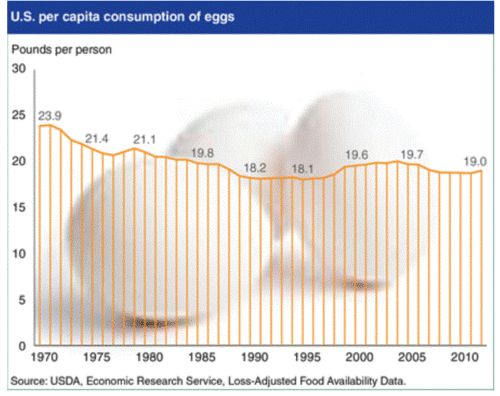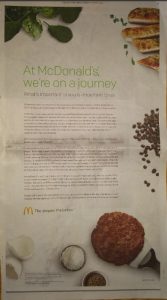Eggs again: Are they good, bad, or whatever?
Here’s another nutrition question that doesn’t go away.
This new study is just out: Egg and cholesterol consumption and mortality from cardiovascular and different causes in the United States: A population-based cohort study.
Its conclusion:
In this study, intakes of eggs and cholesterol were associated with higher all-cause, CVD, and cancer mortality. The increased mortality associated with egg consumption was largely influenced by cholesterol intake. Our findings suggest limiting cholesterol intake and replacing whole eggs with egg whites/substitutes or other alternative protein sources for facilitating cardiovascular health and long-term survival.
This gets right into the funny business of the 2015 Dietary Guidelines. As I explained,
the recommendation to limit cholesterol has been dropped [from the 2015 Guidelines], but the document says, confusingly, that “this change does not suggest that dietary cholesterol is no longer important to consider when building healthy eating patterns. As recommended by the IOM, individuals should eat as little dietary cholesterol as possible while consuming a healthy eating pattern.” Could the dropping of the limit have anything to do with egg-industry funding of research on eggs, the largest source of dietary cholesterol, and blood cholesterol? The Physicians Committee for Responsible Medicine has just filed a lawsuiton that very point.
Well, here we go again. My thoughts:
This is association, not causation. The paper gives this caveat: “At baseline, participants with higher whole egg consumption had a higher BMI and lower household income. They were less educated, less physically active, more likely to smoke and have a high cholesterol level, and less likely to take aspirin. They also had higher red meat intake; lower intakes of fruit, dairy products, and sugar-sweetened beverages; and lower HEI-2015 score.”
Eggs, it seems, track with other unhealthful dietary behaviors.
The egg situation is a mess to sort out because the egg industry funds so many studies in its own defense and these invariably show no effect.
But eggs are one food in complicated diets and it’s really hard to look at them independently of everything else in the diet and lifestyle.
What to do? Moderation is always good advice.







